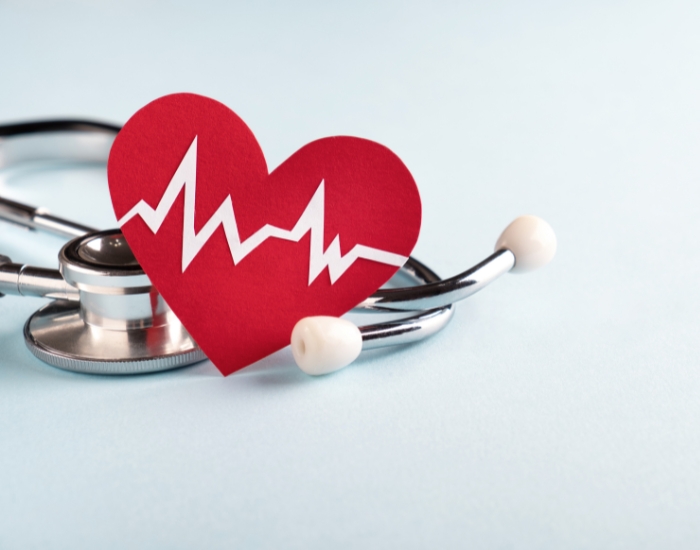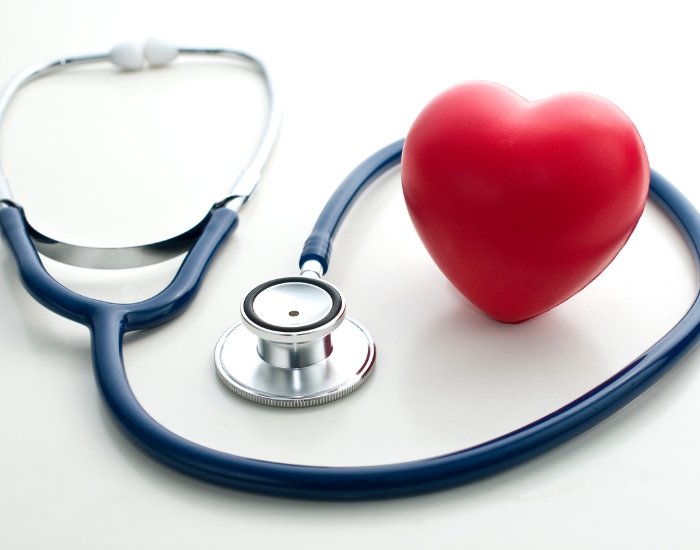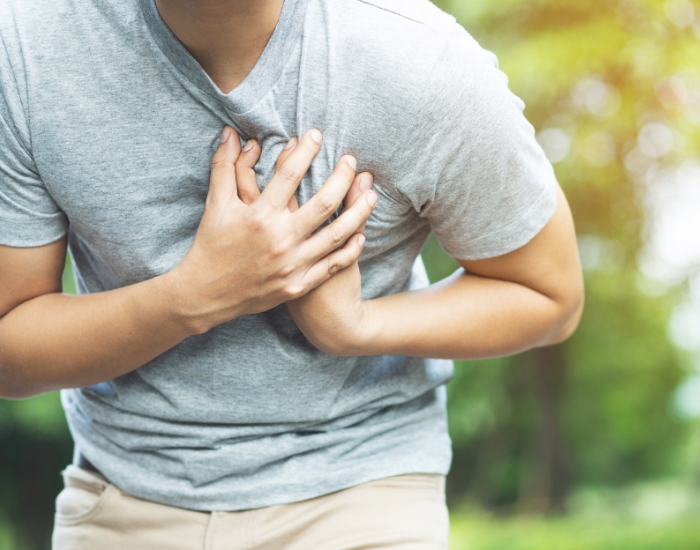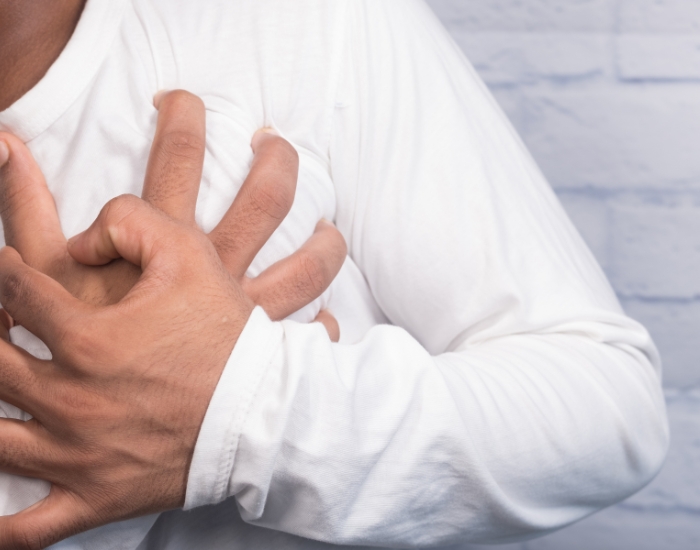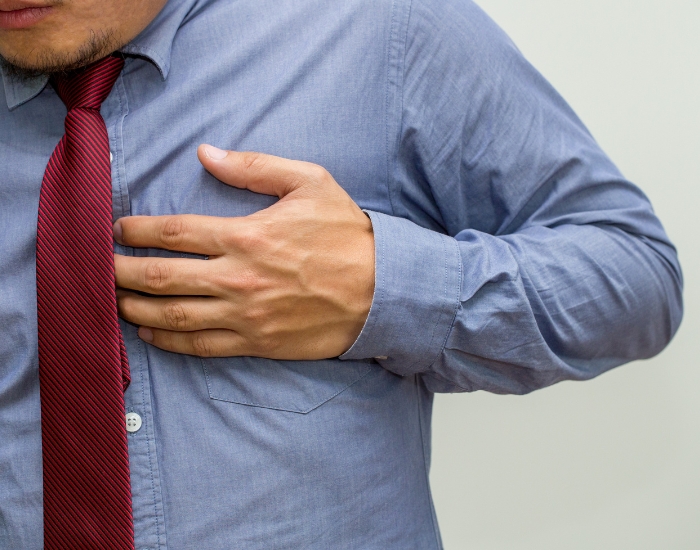Have you ever felt your heart suddenly flutter, pound, or skip a beat? That strange sensation is called a heart palpitation, and it can feel alarming — especially when it’s paired with dizziness, shortness of breath, or even headaches. But how do you know if it’s serious or just a passing moment? In this blog, we’ll explain:
-
What heart palpitations feel like
-
Why they happen
-
When to worry
-
How to manage them
-
When to seek emergency care
What Do Heart Palpitations Feel Like?
What do heart palpitations feel like? For many people, they can be described as an unusual awareness of your heartbeat — something you wouldn’t normally notice. You might feel your heart suddenly racing, fluttering, pounding, or skipping a beat, even when you’re at rest. Some describe it as a flopping sensation in the chest, while others say it feels like their heart is “flip-flopping” or thumping hard enough to be felt in the throat or neck. Palpitations can come on unexpectedly, lasting just a few seconds or persisting for minutes at a time.
While they can occur during physical activity, palpitations often strike during quiet moments — such as lying in bed or sitting still — which can make them more noticeable and concerning. If accompanied by dizziness, shortness of breath, chest pain, or fatigue, heart palpitations may signal something more serious. Even if they only last briefly, it’s important to pay attention to how often they happen and whether they interfere with your daily life. When in doubt, consult a healthcare provider to rule out any underlying cardiac or systemic conditions. In short, people often describe heart palpitations as:
-
A racing heartbeat — even while at rest
-
A fluttering or flopping sensation in the chest
-
A skipped beat or sudden pause
-
A pounding or unusually strong beat felt in the chest, throat, or neck
You may feel these sensations during stress, after consuming caffeine, or even while lying down at night.
Heart Palpitations and Dizziness
Feeling lightheaded or dizzy when your heart skips a beat? You’re not alone. Heart palpitations and dizziness often go hand in hand, especially when there’s a temporary drop in blood flow to the brain.
This could happen due to:
-
A sudden change in heart rhythm
-
Low blood pressure during an episode
-
Dehydration or anxiety-related hyperventilation
If dizziness occurs frequently or causes you to feel faint, it’s a red flag — and you should talk to a doctor.
Heart Palpitations and Shortness of Breath
When you feel like you can’t catch your breath or need to breathe deeply during palpitations, this could be due to:
-
Anxiety or panic attacks
-
A rapid heartbeat reducing blood flow
-
An underlying heart condition like arrhythmia or atrial fibrillation
-
Anemia or thyroid issues
Heart palpitations and shortness of breath together may indicate a more serious issue, particularly if they’re ongoing or occur with chest discomfort.
Heart Palpitations and Headache: What’s the Connection?
You might be surprised to learn that heart palpitations and headaches are often interconnected — and in more ways than one. While they may seem like unrelated symptoms at first glance, the link lies in how your body responds to sudden changes in heart rate and circulation.
When your heart beats irregularly or too quickly, it can affect the amount of oxygen-rich blood reaching your brain. Even a temporary disruption in blood flow may lead to tension headaches or migraine-like symptoms, especially in people who are already prone to headaches.
Palpitations can also cause the body to enter a mild stress or “fight-or-flight” state, increasing adrenaline levels, which may further elevate blood pressure. These fluctuations can contribute to a pulsating or throbbing headache, often accompanied by light sensitivity, nausea, or visual disturbances such as seeing flashes or zigzag lines.
Additionally, palpitations that occur during dehydration, anxiety, or overexertion may increase your risk of developing a headache. Dehydration reduces blood volume, which can worsen both palpitations and head pain simultaneously.
It’s important not to dismiss this symptom combination — particularly if the headache is severe, sudden, recurring, or comes with visual changes, confusion, or difficulty speaking. These may be signs of a more serious neurological or cardiovascular condition.
If you frequently experience heart palpitations and headaches together, speak with a healthcare provider for a full evaluation. You may need diagnostic tests like a heart monitor, blood pressure log, or brain imaging to determine the root cause and appropriate treatment plan.
Heart Palpitations With a Normal ECG — What’s Going On?
A normal ECG (electrocardiogram) might sound reassuring — and it often is — but it doesn’t always catch occasional or fleeting heart rhythm problems.
Your doctor may order:
-
Holter monitor (24-48 hours)
-
Event recorder (1-4 weeks)
-
Echocardiogram to check heart structure
-
Blood tests for thyroid, anemia, and electrolyte balance
Even if your ECG is normal, continued heart palpitations for days or months should be evaluated.
Causes of Heart Palpitations
Here are common causes of heart palpitations:
Physical or Lifestyle-Related
-
Stress and anxiety
-
Excessive caffeine or alcohol
-
Nicotine
-
Lack of sleep
-
Dehydration
Medical Conditions
-
Overactive thyroid (hyperthyroidism)
-
Low blood sugar
-
Anemia
-
Electrolyte imbalances
-
Arrhythmias (AFib, SVT, PVCs)
-
Heart valve disorders
Heart Palpitations for 3 Days or Longer — Is It Dangerous?
A few seconds of fluttering isn’t always a big deal. But if you’ve had heart palpitations for 3 days or longer, it’s time to seek evaluation. Persistent palpitations may suggest an arrhythmia or another heart condition that shouldn’t be ignored.
Pair that with symptoms like shortness of breath, dizziness, or headaches, and it becomes urgent.
When to Worry About Heart Palpitations
Call 911 or visit the ER if your palpitations come with:
-
Chest pain or pressure
-
Fainting or feeling faint
-
Severe shortness of breath
-
Confusion or slurred speech
-
Rapid heartbeat lasting over 10 minutes
-
History of heart disease
These may signal life-threatening conditions like a heart attack, ventricular tachycardia, or stroke.
How to Stop Heart Palpitations at Home
If you’ve been cleared of any dangerous conditions, here are safe ways to reduce or stop palpitations:
-
Practice deep breathing or meditation
-
Cut back on caffeine and alcohol
-
Stay well hydrated
-
Avoid energy drinks and stimulants
-
Get 7–9 hours of sleep nightly
-
Try vagal maneuvers (like coughing or splashing cold water on your face) — if advised by your doctor
For people with anxiety-related palpitations, cognitive behavioral therapy (CBT) and relaxation techniques can be highly effective.
Can Heart Palpitations Kill You?
While most palpitations are harmless, some may be early signs of life-threatening heart issues like:
-
Ventricular fibrillation
-
Atrial fibrillation (AFib)
-
Structural heart defects
-
Heart failure
That’s why it’s important not to self-diagnose. If you experience frequent, long-lasting, or intense palpitations, a cardiac check-up is essential.
Final Thoughts: Your Heart Deserves Attention
Heart palpitations can range from completely harmless to signals of something serious. Whether they last a few seconds or occur daily for months, listening to your body is key.
If you’re experiencing heart palpitations with dizziness, shortness of breath, or headaches, don’t wait. Early evaluation by a healthcare professional can provide clarity, peace of mind, and — if needed — life-saving care.

